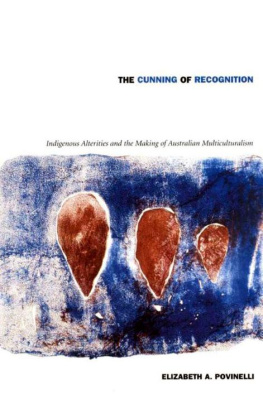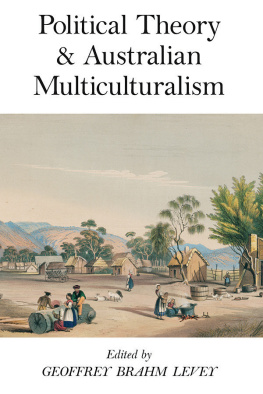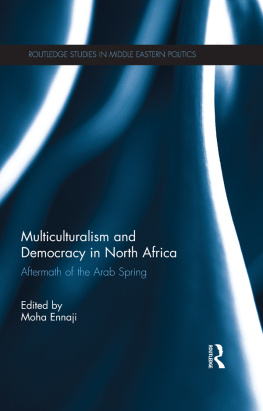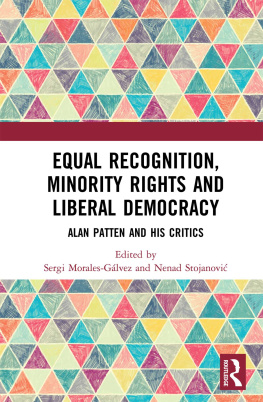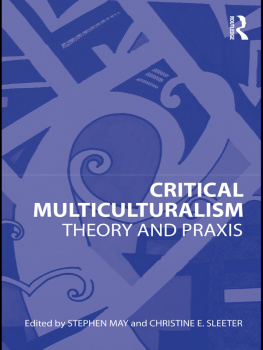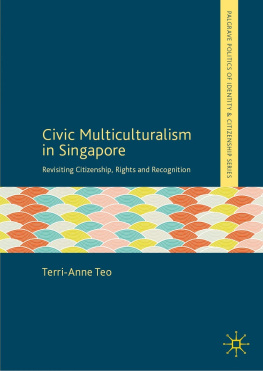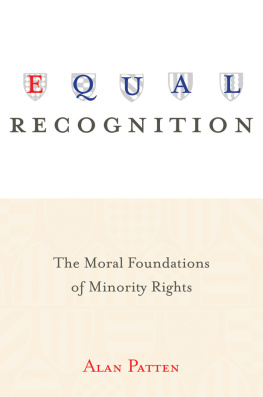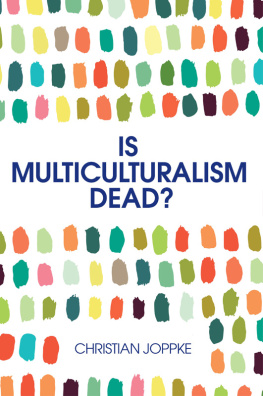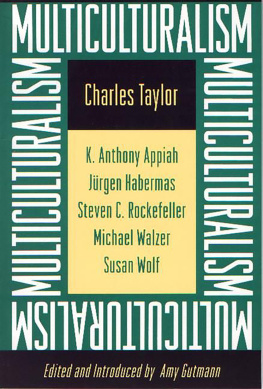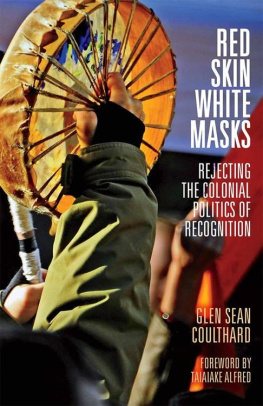A series from the International Institute at the University of Michigan
SERIES EDITORS: George Steinmetz and Julia Adams
SERIES EDITORIAL ADVISORY BOARD: Fernando Coronil, Geoff Eley, Fatma Muge Gocek, Nancy Hunt Rose, Webb Keane, David Laitin, Ching-Kwan Lee, Julie Skurski, Margaret Somers, Katherine Verdery, Elizabeth Wingrove
Sponsored by the International Institute at the University of Michigan and published by the Duke University Press, this series is centered around cultural and historical studies of power, politics, and the state-a field that cuts across the disciplines of history, sociology, anthropology, political science, and cultural studies. The focus on the relationship between state and culture refers both to a methodological approach-the study of politics and the state using culturalist methods-and a substantive one that treats signifying practices as an essential dimension of politics. The dialectic of politics, culture, and history figures prominently in all the books selected for the series.
ELIZABETH A. POVINELLI




TO CLAIRE AND ERIC KREBS WHO CHANGED OUR MINDS
ix
iii

This book is the result of conversations with a number of people who were generous to share with me their insights on problems addressed in the following pages. Gillian Collishaw, Francesca Merlan, Deborah Bird Rose, and Alan Rumsey provided critical conversation on indigenous social life from an anthropological perspective. Wendy Asche, Ross Howie, Tom Keely, Jessica Klingender, Maria Lovinson, Ken Lum, and Ben Scambari and others working at the Northern Land Council played a vital role in deepening my thinking about the legal and institutional mediations of indigenous recognition. The staff working at the Australian Archives in Darwin, Sydney, and Melbourne, with the Elkin papers at the University of Sydney, with the Stanner papers at the Aboriginal and Torres Strait Islanders Council library, and at the Northern Territory Archives provided patient, vital help navigating the historical record on which much of the following depends. Geoff Gray in particular provided invaluable help. Two research projects-the Center for Late Liberalism at the University of Chicago and the Center for Transcultural Studies - have been vital to my thinking through of some of the problems of liberal forms of recognition and obligation. Whether they fully realized it or not, the following people from these projects critically informed this book: Ackbar Abbas, Lauren Berlant, Craig Calhoun, Vincent Crapanzano, Dilip Gaonkar, Elaine Hadley, Charles Hirshkind, Ben Lee, Leo Lee, Michael Leff, Patchen Markell, Saba Mahmood, Mary Poovey, Michael Silverstein, Charles Taylor, Rolph Trouillot, Candace Vogler, and Michael Warner. Their intellectual guidance was matched by the vigorous conversations - inside and outside Haskell Hall, by door jambs and in cars, over food and the phone-with Nadia Abu El-Haj, Arjun Appadurai, George Chauncey, Lisa Cohen, Jean and John Comaroff, Ray Fogelson, Susan Gal, Neville Hoad, John Lucy, Danilyn Rutherford, Marshall Sahlins, Saskia Sassen, and Siobhan Somerville. Audiences at a number of institutions also were critical to the emergent structure of my argument, especially at Berkeley, Harvard, Emory, Australian National University, LaTrobe, Cornell, McGill, Johns Hopkins, Northwestern, Rutgers, Columbia, the Arena Center, University of Technology Sydney, and the University of Pennsylvania. Finally, Ken Wissoker and two anonymous reviewers for Duke University Press provided constant encouragement and challenge to the form and content of this manuscript.
There are several people who deserve more than thanks, in particular my friends and family at Belyuen and Port Keats with whom I have shared lives for the last seventeen years, especially Marjorie Bilbil, Ester Djarem, Ruby Yarrowin, Alice Wanbirri, Anne Kunggul, Gracie Binbin, and Theresa Timber, and the deceased Betty Bilawag, Tommy Barradjap, Maggie Timber, Agnes Lippo, and Maudie Bennett. Equal to them are Stacey D'Erasmo, Susan Edmunds, and Sharon and Chris Povinelli.
Research for this book was funded by the National Science Foundation, the Wenner Gren Foundation, and the Adolph Lichstern Faculty Research Fund.
Early versions of several of the chapters in this volume have appeared in previous publications. "Mutant Messages" appeared as "Settler Modernity and the Quest for an Indigenous Tradition," Public Culture 11.1(1999): 19-48, special issue: Alternative Modernities," ed. Dilip Gaonkar; ed. "Sex Rites, Civil Rights" appeared as "Native Sex: Ritual Sex, State Rights, and the Making of an Aboriginal Civic Culture" in Gender Ironies of Nationalism: Sexing the Nation, ed. Tamar Mayer (London: Routledge, 2000), 163-86; and "Shamed States" appeared as "The State of Shame: Australian Multiculturalism and the Crisis of Indigenous Citizenship," Critical Inquiry 24.2 (1998):575-61o, special issue: "Intimacy," ed. Lauren Berlant.
I been panic. I been have to get up. I been have to get up, talk now. "No. No. You not going to forget them Dreaming. You can't forget. They still there. They still going. They dangerous, that mob. You say, No."'
- Betty Bilawag, conversation with the author, 1993

JUST BE YOURSELF
In his 1958 essay "Continuity and Change" anthropologist W. E. H. Stanner reflected on whether the indigenous population of Australia should assimilate into mainstream settler society. Stanner's discussion would probably not surprise those familiar with mid-century public debates on indigenous assimilation in Australia or, for that matter, in the United States, New Zealand, or Canada. But Stanner writes something that we might easily pass over, rushed, as we often are, to get to the point. He states: "Let us leave aside the question that they may not want to [assimilate], and the possibility-I would myself put it far higher than a possibility- that very determined forces of opposition will appear. Suppose they do not know how to cease to be themselves."1
Thirty-five years later, long after Australian state indigenous policy had shifted from assimilation to self-determination and then to reconciliation, Betty Bilawag described to me the feelings of panic she experienced when she attended a meeting to discuss whether mineral exploration should be allowed in Marriamu and Marritjeban country, a small area of land on the northwest coast of the Northern Territory of Australia. When she realized younger Marriamu and Marritjeban family members were about to vote in mass in favor of mining near a particularly sacred Dreaming site, she described her actions to me in this way: "I been panic. I been have to get up. I been have to get up, talk now. `No. No. You're not going to forget them Dreaming. You can't forget. They still there. They still going. They dangerous, that mob. You say, No."'

